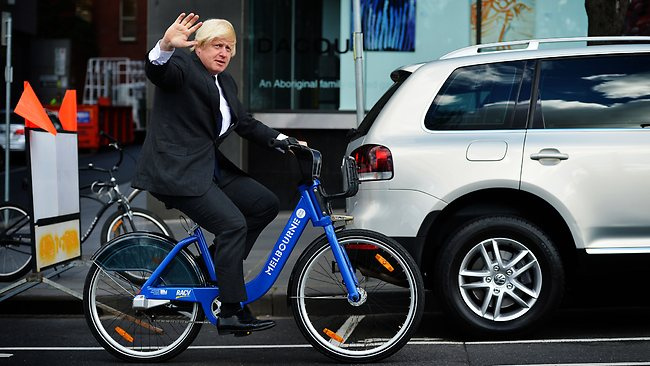Why does Boris Johnson receive special treatment?
The sight of a young boy flattened by Johnson during a game of touch rugby has recently gone viral. The collision occurred on the mayor of London’s three-day trade mission to Japan.
Far from being his most scandalous transgression it’s the latest in a comical and rather telling history of sporting and personal misdemeanours. They raise an interesting question: how does Boris evade the kind of scrutiny other politicians face after similar mistakes?
How did the public forgive him for his extramarital affairs for instance? Other high profile political adulterers have never been so lucky.
Irrespective of his outwardly silly and charming exterior the interpretation of Boris as a more calculated and cunning politician must be a legitimate one. How else could he get away with everything?
Some suggest he’s a masterful actor. They contend his dishevelled and endearing personality is merely a veil masking his desperate ambition to achieve a lasting legacy in British politics. If this is the case his success in maintaining the charade attests to his cunning intellect.
What is the ‘Johnson Factor’ then? Is it simply a matter of brains? This other significant question is often asked because it hints at something important: Boris will be our next Prime Minister.
He jokingly reminds us that becoming PM is about as likely as being “reincarnated as an olive”. But Boris, keen to emulate his political idol Winston Churchill, is undoubtedly in pursuit of what Margaret Thatcher termed “the greatest honour that can come to any citizen in a democracy”.
Jeremy Corbyn’s extraordinary ascent to leadership of the Labour Party coupled with the Liberal Democrats’ total insignificance has only furthered Conservative ambition and optimism for another majority in 2020. Many now see Boris as the candidate to provide it.
Yet the public shouldn’t actually like him. He’s quintessentially upper class and unashamedly privileged; such characteristics normally inspire loathing of politicians. Just ask Cameron and Osborne. Both have been unable to distance themselves from the toxicity of the Bullingdon Club or from their schooling at Eton. The pair’s past behaviour has also failed to escape notice.
Who could forget veteran Labour MP Dennis Skinner berating Osborne in the Commons over the Chancellor’s rumoured use of cocaine whilst at university? Or what about Tory backbenchers labelling Cameron and co arrogant posh boys? Boris’ immunity to criticism about his background is surely the result of his efforts in maintaining a more convivial persona.
Commentators have often pointed to Boris’ mayoral tenure as a dress rehearsal for No. 10. Now he’s back in Westminster the media inquisition on this subject has only intensified.
This is not merely the consequence of Boris’ return to parliament though. It’s the result of something far more unexpected: Cameron’s witless gaffe before this year’s general election.
The revelation that Cameron won’t contest a third term has provoked a bitter power struggle within the now fractured Conservative Cabinet. Osborne, May, and Boris have been dumped with the unenviable task of outmanoeuvring each other in an attempt to earn the right of succession.
In an already divided Conservative Party, especially over Europe, this will prove challenging. It’s a process that will severely undermine the unity of the Cabinet and will play a large part in the narrative of the next five years.
An impressive speech at the recent Conservative Party Conference has proved one thing: Boris Johnson’s quest for leadership has definitely begun.
Axel Fithen
Image: Federation European Cyclists




